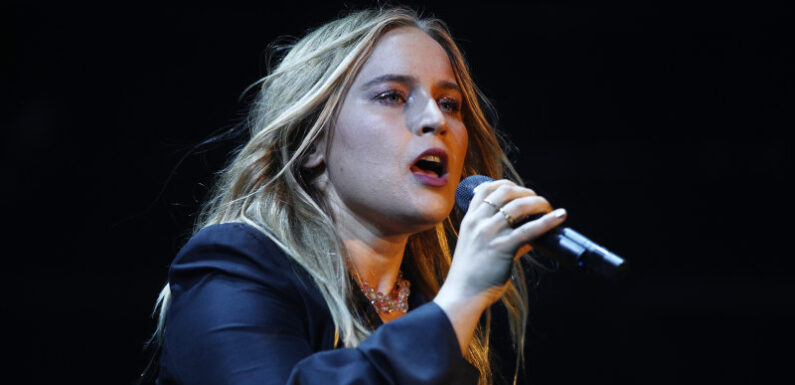
Save articles for later
Add articles to your saved list and come back to them any time.
Australian musicians say they are getting paid “next to bugger all” for their songs that are played on radio, and want a 54-year-old cap that limits royalty payments they receive from commercial radio stations and the ABC scrapped.
But the federal government, which has pitched itself as a strong supporter of Australian music, is not expected to back a private member’s bill by ACT independent senator David Pocock that aims to overturn the antiquated copyright law restricting their earnings.
Jack River is among the artists pushing for the removal of the cap on payments.Credit: Don Arnold/WireImage
Currently, more than 260 radio stations across the country pay out royalties to writers and publishers of Australian music, via the Australian Performing Rights Association. Separately, the Phonographic Performance Company of Australia collects royalties on behalf of performing artists for sound recordings.
Since 1968, sound recording royalties have been capped at one per cent of the commercial radio sector’s revenue, which last financial year amounted to $4.4 million. The ABC’s contribution is capped at just 0.5 cents per head of population.
Pocock said the annual return to musicians from commercial radio in total was less than the single salaries paid to some of commercial radio’s biggest stars. The ABC paid out $125,000 last financial year, he said, less than its annual travel budget.
On Wednesday, Pocock’s bill will be debated in the Senate. Ahead of the parliamentary debate, singer-songwriter John Williamson penned a handwritten note to radio station executives, who oppose the scrapping of the cap.
John Williamson: “I’m not thinking about me after 53 years in the business; it’s for our future creators.”
“I reckon after 50 years you’ve had a very good run paying next to bugger all for the use of our property that is not cheap to produce,” Williamson said. “Don’t hate me for asking for more, guys. It’s all about being fair dinkum. I’m not thinking about me after 53 years in the business; it’s for our future creators.”
Removal of the copyright cap has been recommended by several parliamentary inquiries and in 2006 the Howard government announced plans for its removal but never followed through. Pocock said the cap distorted the earnings of creatives with composers and songwriters paid more than an artist every time a song is played on broadcast radio.
“At the moment, we have odd examples where if a station plays Khe Sanh, songwriter Don Walker will be paid a greater royalty than Jimmy Barnes,” he said.
Adam Hyde, from the electronic music group Peking Duk, is also supporting the proposed change. “The issue is an out-dated limit set by government over 50 years ago,” he said. “Times have changed a lot and it is so important to get this right for all recording artists to be fairly paid for their music.”
Cap on royalty payments deliver Inequitable returns for the members of Cold Chisel: Phil Smart, left, Jimmy Barnes, Ian Moss and Don WalkerCredit: Peter Rae
But the body representing Australia’s commercial radio stations said the bid to lift the cap was a “blatant attempt by multinational record labels to bully Australian commercial radio”. It did not expect the private member’s bill to be supported by the major parties.
“The unintended consequences of passing this bill would be to see fewer commercial radio stations on air and with less Australian music being played, and with fewer Australian artists being broken,” Commercial Radio Australia’s CEO Ford Ennals said.
“At the same time, we’d have to go to government and say we can’t fulfil your quotas because we are being asked for an unreasonable amount of money to pay for Australian music, and the net effect of that would be wholly negative.”
Senator David Pocock in Parliament last week.Credit: Alex Ellinghausen
An ABC spokesperson said the removal of the ABC’s radio cap would result in an increase in the licence fee paid by the ABC to broadcast music and sound recordings. This would have an impact on the ABC’s budget and may affect the ABC’s activities and services.
Pocock’s bill is expected to be referred to a Senate committee for further deliberation.
A spokesperson for Arts Minister Tony Burke declined to comment.
Find out the next TV, streaming series and movies to add to your must-sees. Get The Watchlist delivered every Thursday.
Most Viewed in Culture
From our partners
Source: Read Full Article



